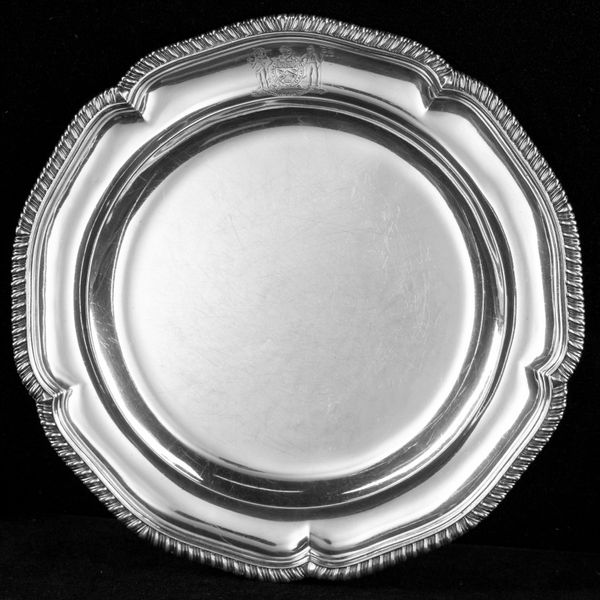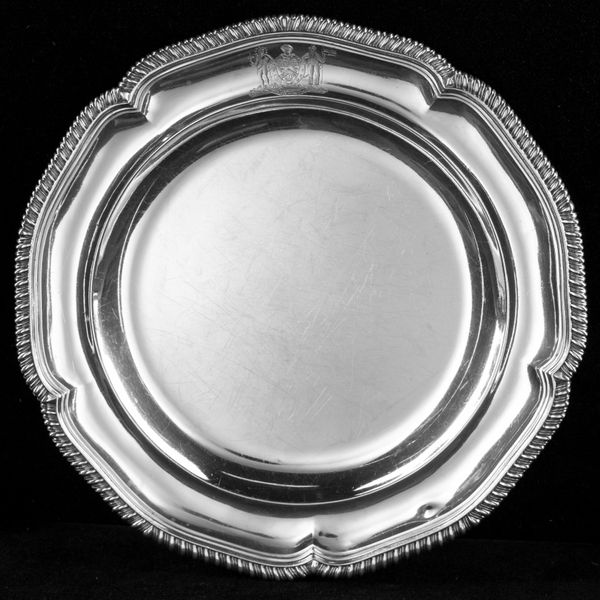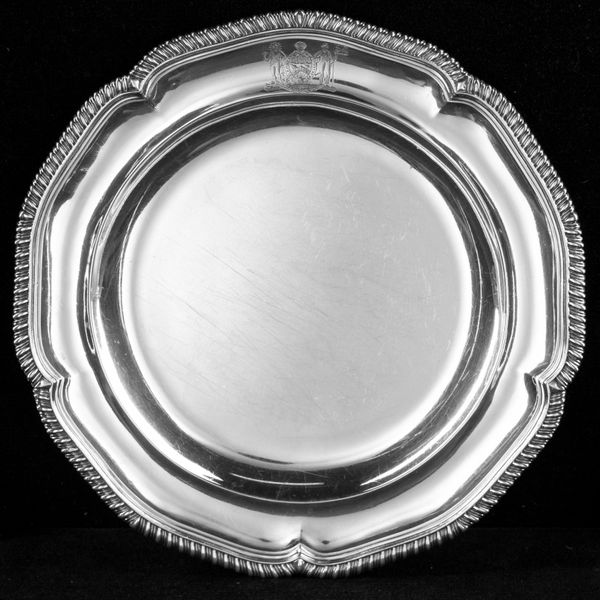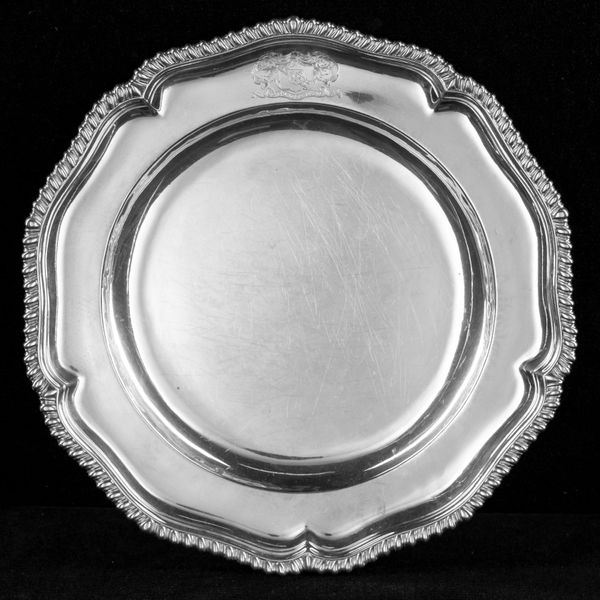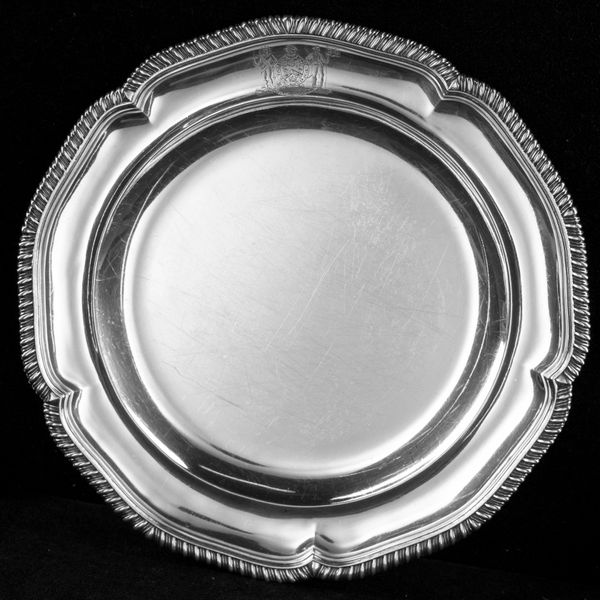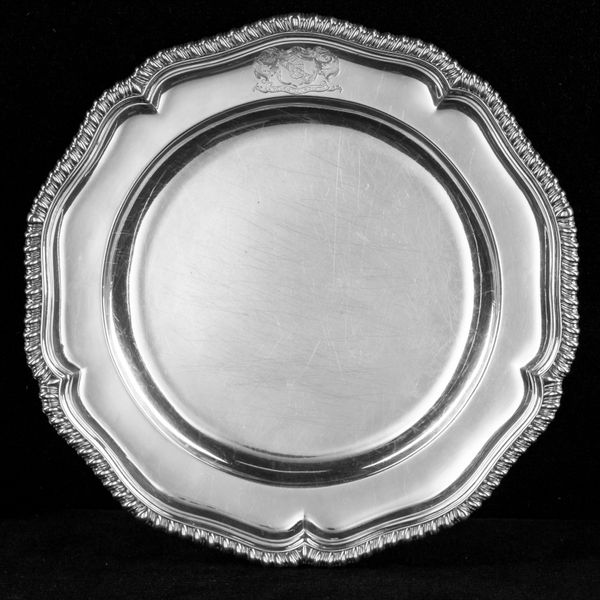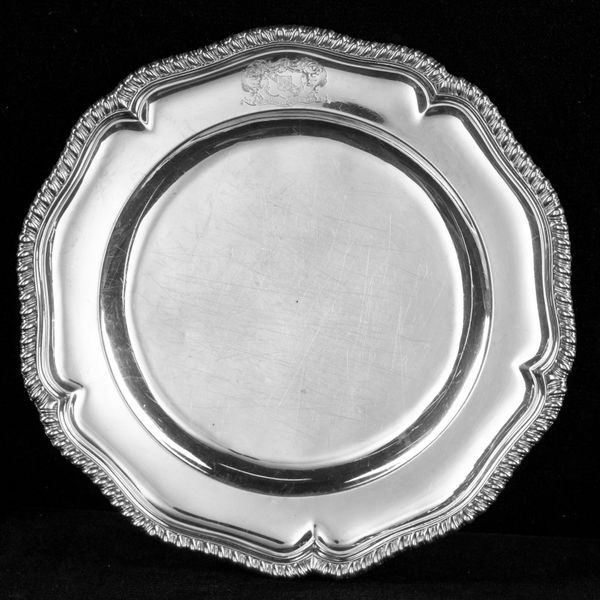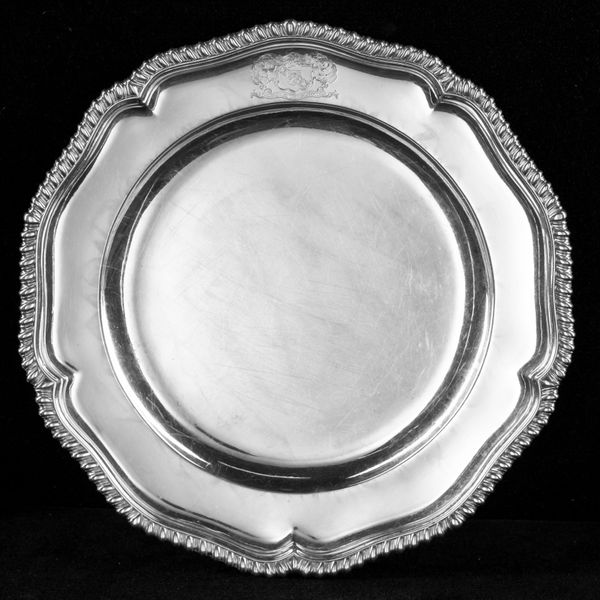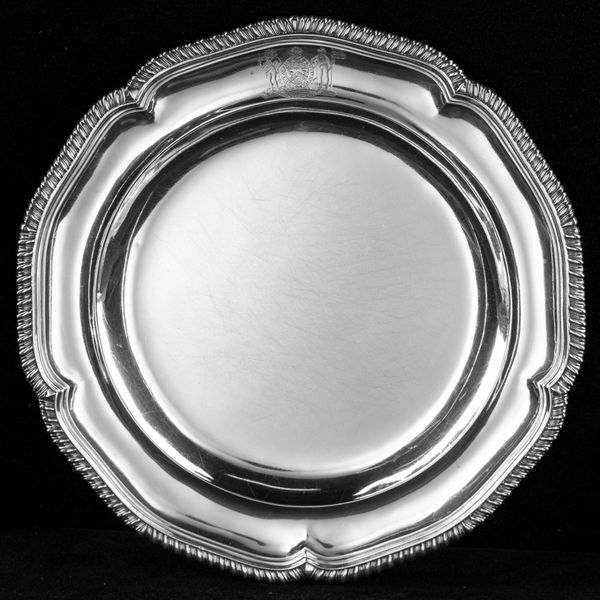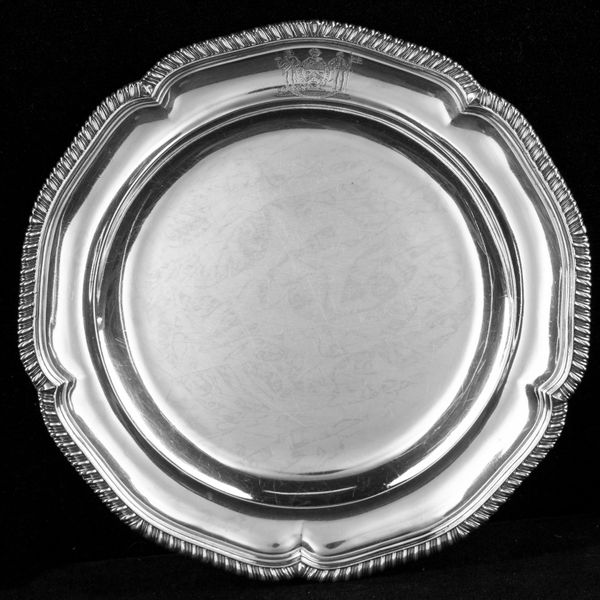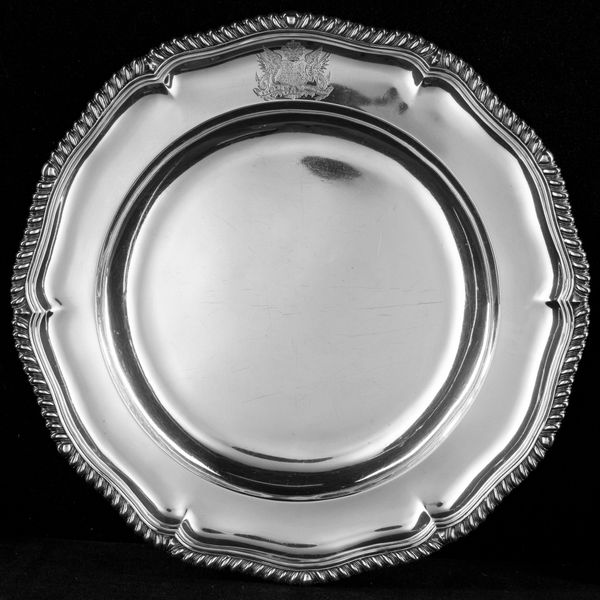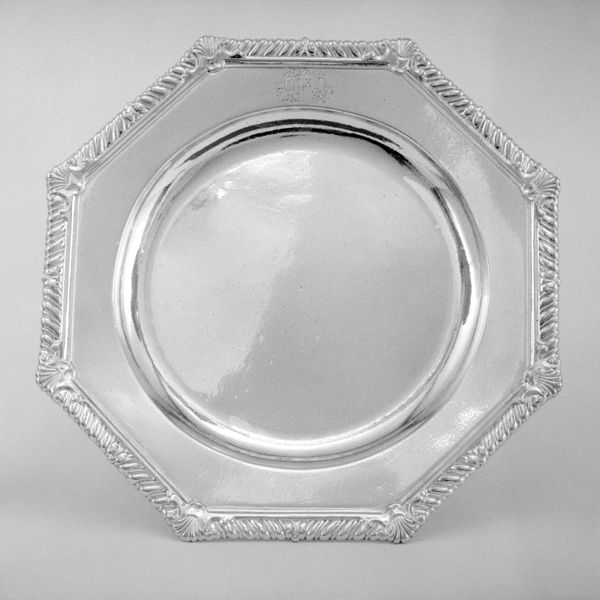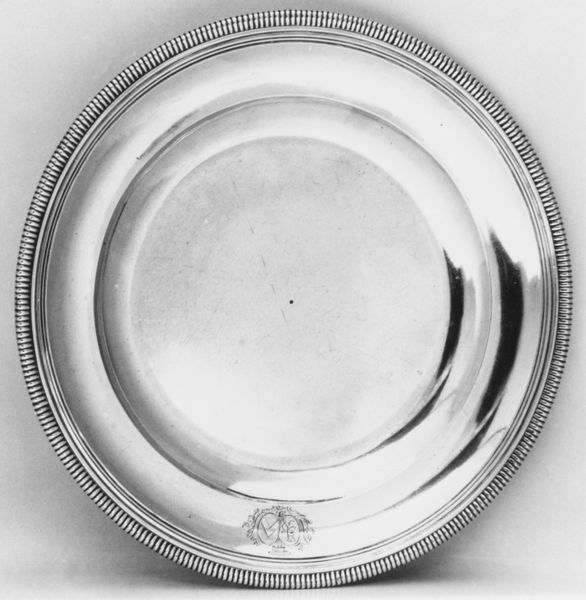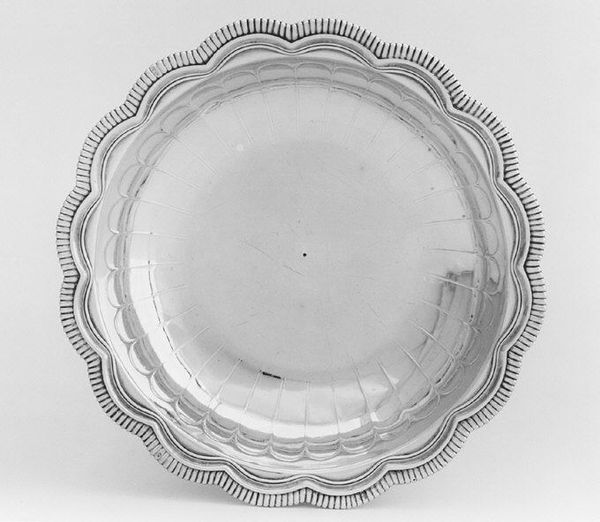
silver, metal, sculpture
#
silver
#
metal
#
sculpture
#
classicism
#
sculpture
#
decorative-art
Copyright: Public Domain
Editor: This shining "Plate" by William Sumner, made around 1807, sparkles under the gallery lights here at the Minneapolis Institute of Art. The sleek metal surface almost feels like it's reflecting the past, somehow. The craftsmanship just sings of a different era. What story do you think this plate is trying to tell? Curator: Oh, this beauty whispers tales of hushed dining rooms and candlelight! I picture it gracing a table laden with roast pheasant and fine wine, the kind of scene Hogarth might have loved to satirize. Do you notice the tiny coat of arms engraved at the top? That would've signaled a family's pedigree, their place in society’s pecking order. It's not just a plate, you see, it's a declaration. Almost humorous to think something so functional could also be so…boastful. Editor: So, it's a functional object that also performs status? The classicism style is visible in the perfect radial symmetry and ideal round form. It looks as if nothing could improve its composition. I did wonder about the size, whether it might have been more for decoration than eating? Curator: Size matters, darling! This would most likely have been for serving, a showpiece to impress the guests. And you are correct! Symmetry was everything! If one guest found fault in a dinner setting back then, the host could be ruined! I have also always found a sense of humour in classicism and formalism, perhaps for its intensity! And if one doesn't get a joke... is that not a tragedy as well? Editor: That’s fascinating – so much pressure on one little plate! Thank you, I didn't realise a single serving plate could represent such a wider statement! Curator: Art allows one to step into someone else's dream or nightmare. Plates are mirrors that can reflect empires of power.
Comments
No comments
Be the first to comment and join the conversation on the ultimate creative platform.
